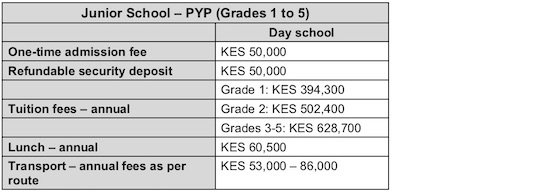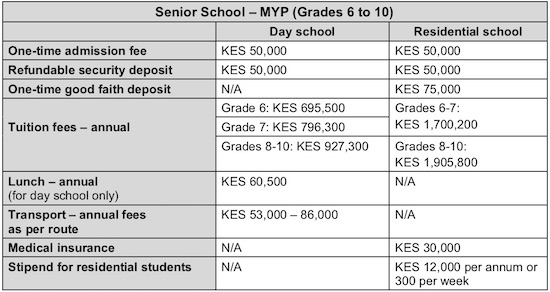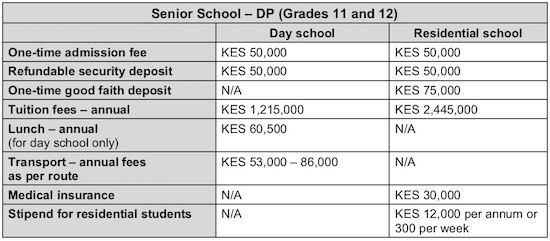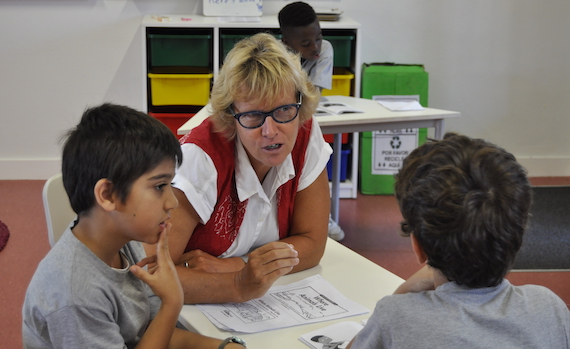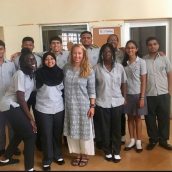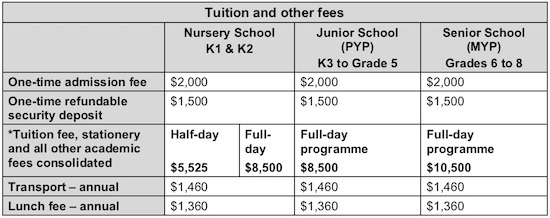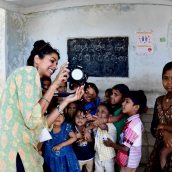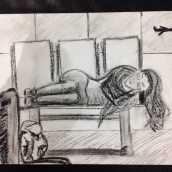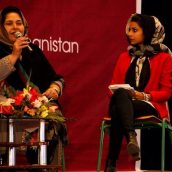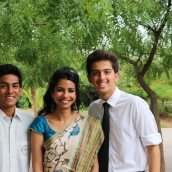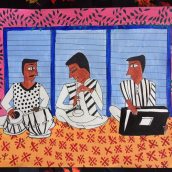Fee schedule test
Fee schedules for the 2018-2019 academic year.
![]() Aga Khan Academy Mombasa Fee Schedule – 2018-19
Aga Khan Academy Mombasa Fee Schedule – 2018-19
Notes
1 The above fee is applicable to the residents of African countries and subject to an annual review.
2 A one-time Non-Refundable Admission Fee is payable for student enrolling for the first time. The admission fee must be paid to secure the place for a child in the Academy. This cannot be deferred or paid in instalments. The due date is one week after the offer has been accepted.
3 A one-time Refundable Security Deposit is also payable on acceptance of admission and should be paid together with the admission fee mentioned above. It is refundable when a student leaves the school as long as the required notice has been given in writing and “No Dues” clearance is obtained from the Academy. No interest is payable on this deposit.
4 The residential students will pay the premium for medical insurance separately as indicated in the fees table above. This will be arranged by the Academy and the premium will be due along with the first tuition fee instalment.
5 The following Residential Programme fees are applicable to international students and payable in USD: Grades 6 and 7: USD 25,800; Grades 8 to 10: USD 28,700; and DP Program: USD 35,900. All other charges are applicable as per the table above.
6 A Sibling Discount of 5% is applicable on Tuition Fees for the second child and subsequent children.
7 Tuition fee is payable in three equal instalments, no later than 15 July, 31 November, and 1 March for each academic year.
8 Tuition fees may be paid in full for the whole year with an early-payment discount of 3%, if paid before 15 July. This discount is applicable on the net amount payable after other discounts have been deducted.
9 The fees can be paid in US dollars or Kenyan Shillings. The US Dollars fees will be indicated on the invoice using the Central Bank of Kenya’s exchange rate on the invoice date. The Academy however reserves the right to change this policy.
10 The Academy will charge a monthly surcharge of 3% on the total outstanding dues older than 30 days, and in case the fees are not paid within one month’s period following the deadline, the student will not be allowed to attend classes as well as participate in the other activities undertaken by the Academy.
11 Tuition fee includes course fee, use of essential course books, library books, IT and science laboratory equipment and certain classroom supplies. This however does not include uniform.
12 Starting from Grade 4, students may also take up to three field trips including curriculum, bonding and optional trips, for which the parents will be invoiced separately. Information on these field trips will be shared with parents at least one month in advance.
13 Exam fees for MYP and Diploma will be billed separately based on actual fee from International Baccalaureate Organization (IBO).
14 The Academy no longer accepts cash for fee payments. All payments must be made by direct bank deposit, bank transfer, or Mpesa even if payment is made by a third party such as a sponsoring organization. Parents must provide the finance office (mba-bursar@agakhanacademies.org), with a hard or an electronic copy of the proof of payment showing the full name of student and Student Identification Number within 15 days of fund transfer for issuance of payment receipt. Absence of this information may delay crediting the fees reflected on your account in our system.
15 Parents are responsible for ensuring that the fees payments are made into the correct bank account of the Academy. In the unlikely event of any change in bank account, the changes will be communicated to parents in writing via a hand delivered letter from the Academy.
16 If a student wishes to leave the Academy, one term’s advance notice of withdrawal must be given in writing or one term of the annual fees will be due and payable. School clearance will not be possible until any outstanding dues are settled in full.
17 The Academy reserves the right to withhold results, school certificate, transcripts or any other information and/or document until all outstanding dues are settled in full.
18 The admitted students, who demonstrate financial needs and duly fill in and submit the application with the required supporting documents with stipulated time, can be considered for Financial Aid. An independent Financial Aid Committee is responsible for reviewing and approving any request for Financial Aid by the students.
19 The above terms and conditions may be modified or new terms may apply to reflect changes in the law or our services. For further information please contact us at
MBA-BURSAR@agakhanacademies.org.
Maike Silver: Cultivating Young Minds to Truly Make a Difference
Ask Maike Silver, Junior School Principal at the Aga Khan Academy in Maputo, Mozambique, what attracted her to teach at the Academy.
“The vision and mission of the Academy,” she states simply. “The vision to inspire young people into becoming future leaders of their countries. To actually have the ethical persuasion to make a difference in the lives of their countrymen.”
Originally from Germany, Maike says it was her father’s voluntary work in her hometown that swayed her into the teaching profession. “I was 12 years old when I started helping my dad coach young swimmers at our local hometown club. Ever since then, I have wanted to work with children and young people.”
Starting her teaching career at a German-American International School in California as an Early Years Specialist, Maike worked for 17 years, before embarking on her international educator journey, first to Cebu, Philippines, and then onto Maputo, Mozambique. She started working at AKA Maputo in 2018.
While she applauds the International Baccalaureate (IB) framework the Academy uses to guide teaching and learning, Maike also values the Aga Khan Curricular Strands of ethics, pluralism, economics for development, cultures, governance, and civil society. These play an important role in her instruction.
“It is these added leadership and stewardship attributes that empower students to care for their communities and that also provide a concentrated focus on local issues,” she states with conviction.
One of Maike’s main goals is to create an environment in which learning can be a positive and transformative experience and make a meaningful impact on students. Aware that young people flourish academically and emotionally in a constructive environment, Maike goes to great lengths to demand discipline for behaviours that maintain reverence and a sense of community and family in which every student feels valued. She feels strong peer relationships are important as are mutual trust and respect between students and between students and teachers.
“In order to be a great teacher several factors need to be in place,” Maike says with authority. “The classroom environment needs to be one of mutual respect where teachers and students connect and together create expectations for behaviour that uphold dignity, and a sense of caring for each other and a passion for learning,” she states solemnly.
In her opinion, teaching is one of the hardest and yet one of the most rewarding professions. “Being a teacher is a difficult occupation as it requires a tremendous amount of energy to keep children engaged in their learning as well as show compassion for all categories of different learners. The job entails diplomacy and resilience when dealing with the different demands from parents, students and administrators.”
Aware of the importance of being prepared before teaching a class, Maike states emphatically that a teacher needs to plan activities and strategies with a strong sense of commitment in order to inspire students.
“The teacher needs to plan engaging activities that have a clear sense of purpose and where the outcome can be assessed. At the same time, the teacher needs to be responsive to the needs of students and must be flexible in their planning. This requires a teacher to be open-minded and reflective,” she notes.
If Maike carries a sense of manifest destiny for her students, she credits the Academy’s IB curriculum of a holistic education. Saying it is critical for educators to train students to think critically and creatively, and to be able to transfer their knowledge to real-life situations, she quotes Ernest LeRoy Boyer, who was a distinguished American educator, who once said “To be truly educated, a student must …make connections across the disciplines, discover ways to integrate subjects and ultimately relate what they learn to life."
Maike has savored every moment of being part of the AKA Maputo family. “I feel it is a tremendous honour and responsibility to be part of creating sustainable systems for a newly-developing Academy. I hope to leave behind a legacy of having been a kind, compassionate and effective leader who played an essential part in providing our young leaders of the future with the highest quality of education that prepares them to enact positive change in the world they inhabit.”
Written by Perviz Walji
Shad Bherani: Making the connection between classroom and career
In his final year of the Diploma Programme at the Aga Khan Academy Mombasa, Shad Bherani is ambitious, curious, and driven to become an engineer – or, as he describes himself, “simply one of 7.6 billion people who is passionate to pursue his career.”
Sticking to his motto that “opportunity only comes once,” Shad opted to use his summer vacation last year to bridge the gap between his classwork in the sciences and his calling in mechanical engineering. “I just thought not to sit back at home – to do something for me, for my career,” he says. And so, at home in Karachi, he inquired at the Aga Khan University (AKU) if they might consider taking him, a keen and talented International Baccalaureate (IB) student, as a summer intern through the Academies internship programme.They fortunately agreed – and the placement, Shad’s first professional role, turned out to be a thrilling and fulfilling hands-on learning experience. He spent several weeks working closely with engineers and technicians in the AKU Hospital’s Mechanical, Electrical and Plumbing department. With their supervision and support, Shad learned how to operate the Building Management System, which runs the air conditioning across campus, including filtering air and controlling the temperature of every air conditioning unit. He also came to understand the ins and outs of the campus’s primary, secondary, and tertiary or emergency power sources, which are essential for critical wards in the hospital.
By helping to repair various machines and air conditioning units, assisting with reports and handling secondary power unit operations, Shad applied the theories he had learned in his math, physics and chemistry classes at the Academy to the complex machinery and inner workings of the hospital and university campus.
For Shad, that was the most memorable outcome of his internship: the reward of having his classwork and textbooks come to life in real-world applications. His strongest subject at school is physics, and he gained a new appreciation for the course, as it is arguably “the most important component in mechanical engineering.” Now, he enjoys discussing the class topics and their real-world relevance in more depth with his teacher.
It was also a joy for Shad to find that he could handle the chemical formulas used in filtering atmospheric air, and could understand the mechanics of supply and exhaust fans, chillers and boilers. Shad found that he could confidently approach new, unfamiliar tasks and challenges by combining his previously acquired knowledge with the skills he was developing in practice at the internship.
In addition to applying and developing his technical knowledge and skills, Shad also gained insight into the workforce: “I saw how the ‘official’ world works – the life of a student is different from that of a person who is working!” he reflects. He points out that in the working world, everything is on time, and one of the major transferable skills he has gained from the Academy is the ability to manage his time and meet deadlines while balancing a heavy workload.
And balance, for Shad, is key: “I also got the opportunity to see the other side of engineers working in control rooms – by getting involved in jokes during lunchtime”, he recalls, which he welcomed as a way to relieve the stress of the 10-hour work days. Shad also maintains balance in his school life: despite his continuous deadlines for assignments and university applications, Shad values spending time in activities and service. “The Aga Khan Academy is known for its holistic development…in our enrichment, we do service for other people; we go on adventures, we serve our community.”In this spirit of collaboration and service, Shad aspires to use his education and career as an engineer to give back and to serve his country and its people, by assisting in Pakistan’s development through technology.
Shad’s inspiring internship renewed his motivation to keep working towards those goals. “Before, I didn’t actually know what will happen in my career,” he says. “But now, I know how I’ll be working, after my undergrad, if I pursue that career.” As he looks ahead and plans for that academic and professional journey, he is keeping his options open: “I’ve already applied to universities worldwide.”
The internship at AKU exceeded all Shad’s expectations and instilled a stronger sense of self-confidence. He especially appreciated being encouraged to undertake tasks normally handled by engineers, and to be an integral part of the team. “My supervisor was impressed with me,” he says proudly. “He told me that he can see an engineer in me.”
By Natasha Pirani
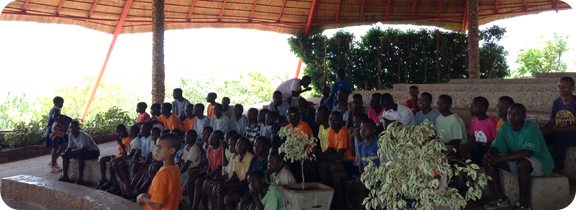
Community Service
Community service is an overarching and major facet of student education and experience at the Academies. Incorporated into student life and the curriculum, community service extends the educational experience beyond the classroom, informing students of the real-world implications of their studies. Through community projects with local organisations and groups, students gain a sense of the interconnectedness of their education with the world around them.
Students can participate in a variety of structured community initiatives and internships to learn about their place in the world.
By partnering with local Aga Khan Development Network agencies, students learn first-hand about the operations of an organisation and work towards making tangible contributions to the agencies.
In addition, community engagement provides an understanding of broad concepts such as human rights, dignity and autonomy, while emphasising the ethos of leaving the world a better place.
Examples of service projects from the Aga Khan Academy Mombasa:
Coast Rural Support Programme: Tree planting at Mtaa community reservoir. The reservoir was created as a community project. The outreach project involved planting 700 indigenous seedlings around the reservoir.
East African Quality in Early Learning: Creation of the Fun Reading Day initiative to promote early grade reading. Inspired by the common 1:10 ratio of students to books in local public primary schools, the first project was to collect books to establish a library at Ng’ombeni Primary School. Through a book drive and other community projects, students collected books and catalogued and prepared them for library use.
Our Junior School and Diploma Programme (DP) students visited the Ng’ombeni Primary School for group reading sessions. This project was then handed over to upcoming DP students to continue.
Education for Marginalised Children in Kenya (EMACK): Student’s council training workshop at Longo Primary School. Sarrah Sheikh came to know the Longo Primary School through her summer placement service. She went on to assist EMACK in establishing student leadership bodies, beginning with Longo Primary School. Topics covered went from effective leadership to communication tools, and the difference between prefects and elected student leaders. Three weeks after this project, the Kenyan government announced the phasing out of the prefect system and the introduction of elected student councils.
Madrasa Resource Centre: School painting project at Mpirani Nursery School. After visiting a school in disrepair, the DP students decided that a bright place was needed for the students to learn. They mobilised their fellow students to create bright learning materials and to repaint the school.

Admissions Forms to Download
If you are having difficulty accessing our online enquiry service, you can also download the package and forms here.
Age requirements
Please see the age requirements that will apply over the following years for entry to the Academy.
2012-13 2013-14 2014-15 2015-16 2016-17
Junior School
Years 1–6: Primary Years Programme
Students entering year 1 should have completed at least three years of Nursery School and must be 6 years of age by 31 December of the year of entry.
All prospective students must demonstrate a potential for high academic achievement and demonstrate competency in literacy and numeracy. Each applicant from year 2-5 must sit a standard assessment in logic, English (reading and writing), mathematics and creativity and supplemented by personal interviews with key members of the Junior School staff.
Senior School
Years 7–10: Middle Years Programme
All students applying for a place in the Senior School must have attained high scholastic achievement in their former educational institutions. They must also demonstrate a keen interest and participation in community service projects outside the classroom and/or extracurricular activities such as sporting activities, clubs, arts and music.
All applicants must schedule an appointment for a standard assessment test in logic, English, mathematics and problem-solving at the school in addition to providing past student grade reports and certificates of achievement. Applicants will also have personal interviews with key members of the Senior School staff as part of their application process.
Diploma Programme
Years 11–12: Diploma Programme
Applicants for the International Baccalaureate (IB) Diploma Programme at the Aga Khan Academy Mombasa must have demonstrated outstanding academic achievement (with a minimum of an average B grade from their current school) as well as a proven record of civic mindedness and participation in community projects.
The application process requires prospective students to undergo a standardised assessment test in English, mathemathics and logic as well as an interview with IB Diploma Programme coordinators and key members of Senior School staff.
New students will not be accepted in the second year of the diploma programme.
Academy tours are held regularly throughout the school year. For more information about applying to the Academy, please contact the admissions office. You can call the admissions team on their direct lines: +254 (0) 736 200 008 or +254 (0) 733 121 927.
Fee schedule test
Fee schedule for the 2018–2019 academic year.
![]() Fee Schedule AKA Maputo 2018-19 Eng-Pt.pdf
Fee Schedule AKA Maputo 2018-19 Eng-Pt.pdf
* Does not include transport and lunch fees. A 50% premium will be applicable on tuition fees for international students.
- One-time, non-refundable admission fee is payable for each student enrolling for the first time.
- One-time refundable security deposit is payable upon acceptance of admission. It is refundable when the student leaves the school as long as the required notice has been given in writing and “No dues” clearance is obtained from the school. No interest is paid or payable on this deposit.
- A sibling discount of 5% of tuition fees will be applicable for second and subsequent children.
- Tuition fee may be paid in full with an early payment discount of 3%, if paid before 31 July.
- Tuition fee may be paid in two equal instalments, no later than 31 July and 31 December of each academic year.
- Tuition fee must be paid within 30 days of admission to secure a place at the Academy.
- Tuition fee includes course fees, the use of essential course books, library books, IT structure, science laboratory equipment and certain classroom supplies. This, however does not include school uniform.
- Parents of returning students will be invoiced four to six weeks prior to the new academic year.
- The fees can be paid in US dollars or Meticais. For making payment in metical, exchange rate of invoice date i.e. 15 June and 15 November will be applicable. The Academy however reserves the right to change this policy.
- Parents must provide the finance department (finance.maputo@agakhanacademies.org) proof of payment made through direct deposit or bank transfer even if payment is done by an organisation or a company.
- If a student wishes to leave the school, one term’s advance notice of withdrawal must be given in writing or, in lieu of notice; one term of the annual fees will be due and payable. School clearance will not be possible until an account is settled in full.
- The Academy reserves the right to withheld results, school certificate, transcripts or any other information and/or documents until all outstanding dues are settled in full.
- Students who have been admitted to the Academy, and can demonstrate need, will be considered for financial aid.
- The above terms and conditions may be modified or new terms may apply to reflect changes in the law or our services.
- For further information, please contact us via email on admissions.maputo@agakhanacademies.org.
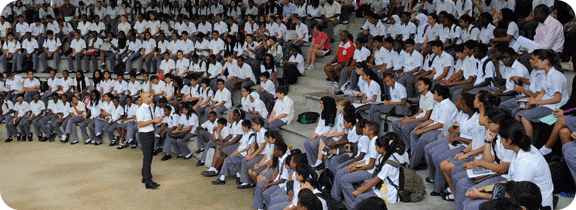
The Junior and Senior Schools
The Aga Khan Academy Mombasa is made up of two schools, the Junior School and the Senior School, which together cater to students from year 1 (age 6) to university entrance.
Junior School
We currently welcome 181 day students in the Junior School (years 1–5), most of whom are from the local area. All Junior School students follow the International Baccalaureate (IB) Primary Years Programme (PYP). Through the PYP, our students learn to be confident, independent and creative learners.
The Junior School building has been designed to address the needs of younger children, with age-appropriate facilities and classrooms. In addition to the PYP classrooms, the building contains the Junior School library, and music, art and information technology rooms. There are also large playing fields and an adventure playground.
Senior School
The Senior School currently houses over 500 students. Those from the local area attend as day students, while those from other parts of the country or region live on campus as part of the residential programme.
Students in the Senior School pursue either the IB Middle Years Programme (MYP) or the IB Diploma Programme (DP).
The Middle Years Programme is for students in years 6–10. It helps them master essential skills and knowledge, and teaches them to be critical and analytical thinkers.
The Diploma Programme is offered to students in the final two years of school. It is an internationally recognised and demanding programme that prepares students for university entrance.
The school caters to both the intellectual and personal growth of students.
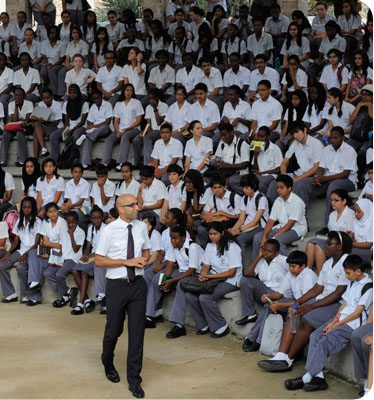
The Senior School has a wide range of facilities that include:
- Laboratories for the sciences as well as for home science and computers
- Art and music rooms
- Library and resource centre
- Religion and culture room
- Career counselling centre
- Design and technology workshop
- Student and teacher lounges
- Theatre
- Multipurpose hall
- Cafeteria and dining area
The building is networked so that computers become common resources for teachers and students. The multipurpose hall can be used for a variety of events ranging from theatre productions to parent-teacher meetings. The school also has swimming, basketball, badminton, volleyball and gymnastics facilities as well as playing fields for soccer, field hockey and athletics.
For further information about applying to any of the programmes offered at the Aga Khan Academy Mombasa, please refer to the admission requirements.
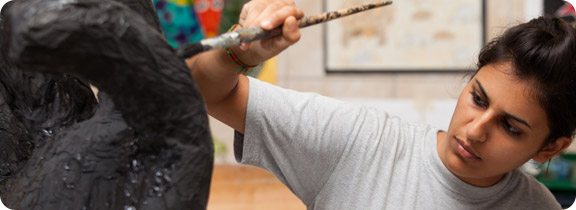
Partnerships
Each Aga Khan Academy benefits from the combined experience of the network of Academies as well as from partnerships with other global networks and institutions. These linkages enable the development and support of world-class standards of excellence.
Aga Khan Development Network
The Aga Khan Academies are one of the key education programmes of the Aga Khan Development Network (AKDN), whose institutions are engaged in a wide array of development initiatives.
AKDN draws on over a century of experience in education from pre-primary to tertiary levels, and includes more than 240 schools and two universities. Students and faculty at each Aga Khan Academy are able to access the intellectual and programmatic resources of AKDN institutions, including the Aga Khan University, the University of Central Asia, the Aga Khan Education Services, the Aga Khan Foundation and the Aga Khan Trust for Culture. The Academies also work in close partnership with AKDN institutions and programmes around the world to provide practical experience opportunities through internships for students and alumni.
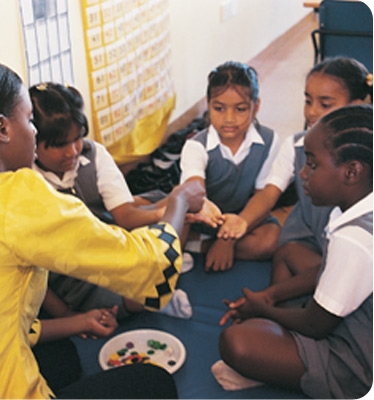
Other leading institutions
The Aga Khan Academies have established formal partnerships with governments, universities and other leading organisations to ensure high standards of practice and foster innovation. Some of the areas that Academies’ partnerships support include best practices in teaching and learning, innovative approaches to teacher education, development of quality campus facilities, supplementary education opportunities for students and access to higher education for talented Academies graduates in need. The Academies have also established partnerships with Ministries and Departments of Education to help strengthen education provision in the countries where our schools are located. Current partners include:
Agencies of the Aga Khan Development Network | International Baccalaureate | Government of Ontario, Canada | Agence Française de Développement | The University of British Columbia Concordia University | California State University, Northridge | Ryerson University | Ministry of Education, Science and Technology, Kenya | Ministry of Education and Human Development, Mozambique | Department of School Education, Telangana, India
In addition, the Academies collaborate with a number of schools and other organisations locally and internationally in areas of mutual interest and to share knowledge and experience.
The IB network
AKDN has a formalised relationship with the International Baccalaureate (IB) through a Memorandum of Understanding between the two organisations.
As IB World Schools, the Academies are closely linked to a network of dynamic IB institutions in over 125 countries, united by a common vision for education and global standards. Guided and facilitated by the IB, this network uses face-to-face conferences and workshops as well as technology to enable teachers and school leaders to gain from each other's experience and to share projects and initiatives.
Ensuring world-class standards
Being connected to these global networks and institutions enables the Academies to test and validate their standards of excellence. These partnerships contribute to the quality of the curriculum and professional development programmes, and ensure that the Academies maintain and enhance their high international standing.
